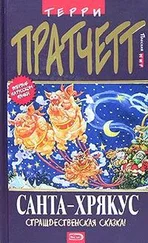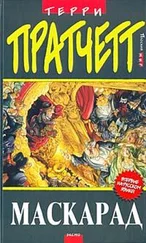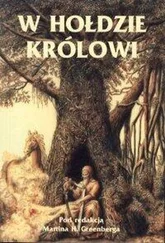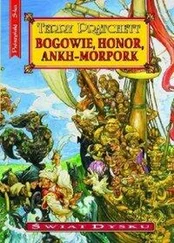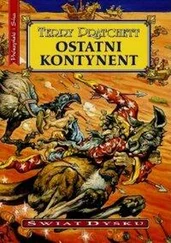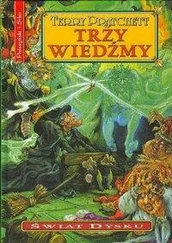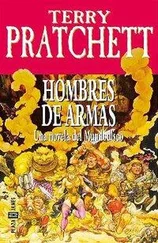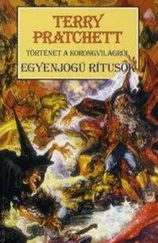He opened his eyes. And now there was just him and the ghost girl. Had she been real? Was he real? Was that a silly question?
The smell of the tubers came up through the sand. His stomach suggested that they might be real, at least, and he burned his fingers digging them up. One would keep until tomorrow. The other one he broke open and stuck his face into the fluffy, crunchy, hot, savory heart of, and he went to sleep with his mouth full, while the shadows danced in circles around the fire.
IN THE DARKNESS OF the wreck of the Sweet Judy, a match flared. There were some pings and scraping noises and at last the lamp was alight. It wasn’t broken, but she had to be sparing with it because she hadn’t found any more oil yet. It was probably underneath everything else. Everything was under everything else. It was a mercy she’d wrapped the mattress around her before the Sweet Judy tried to sail through trees. She’d remember the snapping and the screams as long as she lived. She’d heard the hull split and the masts crack, and worst of all she had heard the silence.
And she’d climbed out into a steaming morning full of birdsong, with most of the Judy back on the smashed trail behind her and one word in her head.
The word was Calenture.
It meant a special kind of madness, brought on by the heat. First Mate Cox had told her about it, probably hoping to frighten her because he was that sort of person. Sailors got calenture when they’d been becalmed at sea for too long. They’d look over the side and see, instead of the ocean, cool green fields. They’d leap down into them and drown. First Mate Cox said he’d seen grown men do it. They’d jumped into a meadow full of daisies and drowned or, as he put it, drownded. And he’d probably pushed them in, too.
And there she was, stepping off a boat into the middle of a green jungle. It was like the… opposite of madness, in a way. She was quite sane, she was sure of that, but the world itself had gone mad. There were dead men back on the track. She’d seen dead people before, when her uncle had broken his neck while hunting, and of course there had been that terrible accident with the harvesting machine. Neither of the dead seamen was Cookie, she was shamefully glad to say, and she’d said a quick prayer over them and had run back to the ship to be sick.
Now she rummaged in the mess that had been a neat cabin and found her writing box. She balanced it on her knees and opened it, taking out one of the gold-edged invitation cards she had gotten for her birthday, and stared at it for a moment. According to her book of etiquette (another birthday present), there should be a chaperone present if she invited the young man to visit, and the only person she could think of was poor Captain Roberts. He was a real captain, which counted for something, but he was unfortunately dead. On the other hand, the book didn’t actually say the chaperone had to be alive, only present. Anyway, she still had the sharp machete stuffed down behind her bunk. It had not been a happy voyage after First Mate Cox had come aboard.
She glanced at the blanket-covered shape in the corner, from which came a continual muttering. She had to keep it covered up or else it’d start to swear again. Some of the words it came out with a respectable young lady should not know the meaning of. The words she didn’t know the meaning of worried her even more.
She had been unkind to the boy, she knew. You weren’t supposed to shoot people, especially if you hadn’t even been introduced to them, and it was only a mercy the gunpowder had got wet. It was sheer panic, and he’d been working so hard burying those poor people in the sea. At least her father was alive and he would come looking for her, even though there were more than eight hundred places to look in the Mothering Sunday Islands.
She dipped her pen in the ink and crossed out Government House, Port Mercia at the top of the card, and carefully wrote underneath: “The Wreck of the Sweet Judy.”
There were other changes that needed to be made. Whoever had designed the cards had completely overlooked the possibility that you might want to invite someone whose name you didn’t know, who lived on a beach, wore hardly any clothing, and almost certainly couldn’t read. But she did her best, on both sides of the card,[! Where it said “Dress,” she’d written: “Yes, please.”!] and then signed it “Ermintrude Fanshaw (the Honorable Miss)” and wished she didn’t have to, at least about the Ermintrude.
Then she put on the big oilskin coat that had belonged to poor Captain Roberts, pocketed the last of the mangoes, picked up a cutlass, unhooked the oil lamp, and set out into the night.
Mau awoke with the Grandfathers shouting in his head and the fire a big glowing heap.
REPLACE THE GOD ANCHORS! WHO IS GUARDING THE NATION? WHERE IS OUR BEER?
I don’t know, Mau thought, looking up at the sky. The women made beer. I don’t know how.
He couldn’t go into the Women’s Place, could he? He’d already been up there to take a look, although men couldn’t go to the Women’s Place, and women couldn’t go into the valley of the Grandfathers. If these things happened, there would be the end of everything. It was that important.
Mau blinked. How much more of an end could everything have? There were no more people, so how could there be rules? Rules couldn’t float around by themselves!
He stood up and saw the golden glitter. A white oblong had been wedged in a piece of broken wood, and there were toeless footprints in the sand. Next to the wood was another mango.
She’d been creeping around while he slept!
There were meaningless marks on the white oblong, but on the other side were some pictures. Mau knew about messages, and this one wasn’t difficult:
“When the sun is just above the last tree left on Little Nation, you must throw a spear at the big wrecked canoe,” he said aloud. It didn’t make any sense, and nor did the ghost girl. But she had given him the spark-maker, although she’d been very frightened. He’d been frightened too. What were you supposed to do about girls? You had to keep away from them while you were a boy, but he’d heard that when you were a man you got other instructions.
And as for the Grandfathers and the god anchors, he hadn’t seen them at all. They were big stones, but the wave hadn’t cared. Did the gods know? Had they been washed away? It was too complicated to think about. Beer was simpler, but not by much.
Women made the beer, and he knew that there was a big bowl in front of the Cave of the Grandfathers where an offering of beer was poured every day. He knew this, and it had just stayed in his head as a thing that he knew, but now questions were rising, like: Why did the dead need beer? Wouldn’t it… trickle through? If they didn’t drink it, who did? And would he get into trouble for even thinking these questions?
Who from?
He remembered going into the Women’s Place from when he was very small. Around about the time he was seven or eight he started to become unwelcome there. Women shooed him away, or stopped what they were doing when he came near and watched him very hard until he left. The very old women in particular had a way of glaring at you that made you want to be somewhere else. One of the older boys told him that they could mutter words that made your wingo fall off. After that he kept away from the Women’s Place, and it became like the moon; he knew where it was but didn’t even think about going there.
Well, there were no old women now. He wished there were. There was no one to stop him doing anything. He wished there was.
The path to the Women’s Place turned off from the track into the forest and then went downhill and southwest and down into a narrow gulley. At the end of it were two big stones, taller than a man, splashed with red paint. That was the only way in, back when there were rules. Now, Mau pulled out the thornbush that blocked the entrance and pushed through.
Читать дальше

